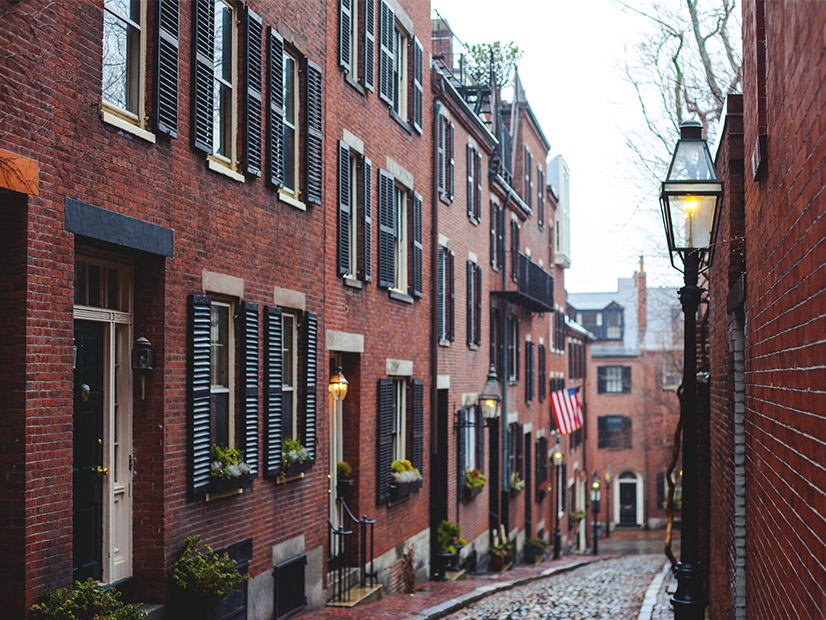
Massachusetts Gov. Charlie Baker signed an executive order on Monday establishing a governing body to focus on incentivizing residential and commercial building owners to convert to renewable electric heat.
The Commission on Clean Heat will bring together 22 experts and stakeholders in affordable housing, energy efficient building design, heating system technology, healthcare and real estate to advise the administration on strategies and policies to reduce emissions from heating fuels, according to the governor’s office.
“Massachusetts has ambitious climate goals, and we will need to pursue innovative solutions to reduce emissions from our heating fuels, keep costs low, and deliver lasting benefits to our communities,” Lt. Gov. Karyn Polito said in a statement. The commission will “reflect a diversity of expertise that will be crucial in developing the forward-thinking policies we need to achieve our nation-leading emissions reduction targets.”
Legislation proposed in the state earlier this year sets an ambitious target for the state to retrofit and electrify one million homes by 2030, or roughly 100,000 homes per year. The Building Justice with Jobs Act (H.3365) calls for an oversight commission to retrofit buildings and track emissions from the building sector in the state. (See: New Mass. Bill Targets 1M Home Retrofits.)
Filed by Rep. Maria Robinson and Sen. Marc Pacheco, the bill was largely the work of the Massachusetts Green New Deal Coalition of community, environmental and labor leaders, of which the nonprofit 350 Mass is a member.
Cabell Eames, the legislative manager of the Better Future Project under 350 Mass, told NetZero Insider she is apprehensive of the Baker administration’s approach to climate policy.
A top-down approach can leave people behind, and many “don’t have the means to retrofit their homes,” Eames said.
“We have to make this very simple for folks,” Eames added. “If people need to be [temporarily] displaced because of asbestos or mold found during the retrofit process, they should be displaced equitably.”
The executive order also creates a task force to support the work of the commission, made up of members of the executive branch, the Massachusetts Department of Energy Resources and the Executive Office of Housing and Urban Development.
Eames argued there should be a task force that is community-based that serves an oversight role on the decision-making at the executive level.
A community-based approach “starts slower, but once you get the input you can really see it take off,” Eames said of home retrofits.
The Commission on Clean Heat is the first of its kind in the nation, according to state officials, and it is intended to provide specific plans to push the decarbonization of buildings on a larger scale.
Vermont is considering a Clean Heat Standard to reduce emissions from heating and hot water in buildings as part of its pending climate action plan. (See: VT Climate Council Puts Clean Heat Standard on the Table.) And New York is drafting a Carbon Neutral Buildings Roadmap to set targets for reducing emissions in buildings across the state.
Heating and cooling infrastructure in homes and commercial buildings are the second largest source of emissions in Massachusetts after transportation, according to state data.
Energy and Environmental Affairs Secretary Kathleen Theoharides will serve as chair of the new commission and will recommend the commission members for Baker’s approval. By November 2022, the group must submit a set of policy recommendations to the administration that will reduce the use of heating fuels and slash building emissions.


